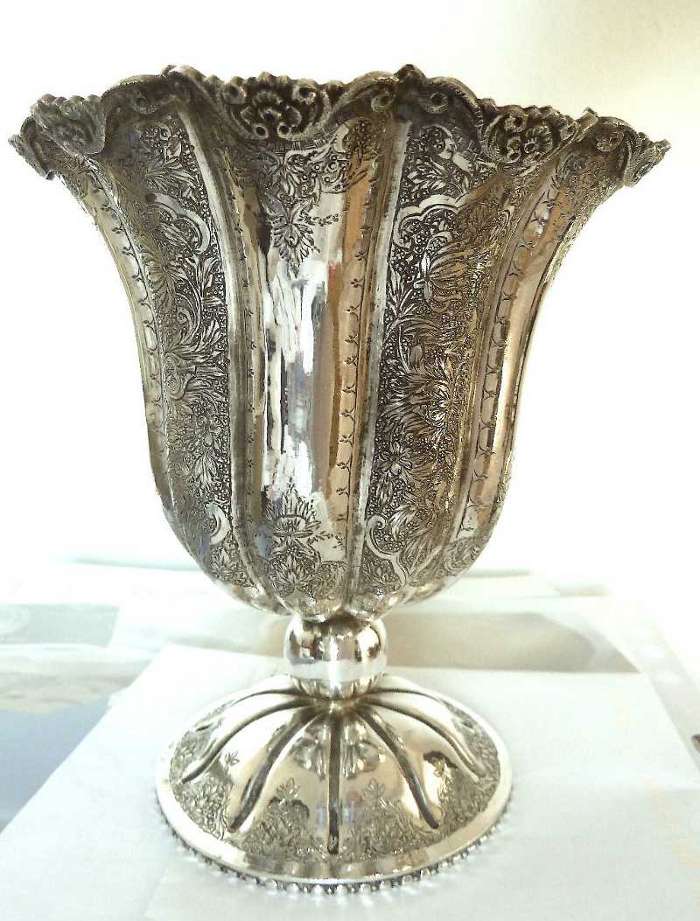FWP:
SETS == A,B; SYMMETRY
WINE: {49,1}
On the pronunciation of the rhyme-words in this ghazal, see the discussion in {95,1}.
In the first line, we learn that something is true of A. In the second line, we learn that B is not C (and/or, through the symmetry of such equations, that C is not B). Given the complete grammatical and semantic independence of the two lines, how are we to arrange them-- which line is in the service of the other? Is wine like kingship, or is kingship like wine? And of course, what about the signet ring or seal of Jamshid (or Jamshed)?
For at the center of the verse is the figure of Jamshid, famous both as a king and as the owner of the legendary Cup of Jamshid [jām-e jam]. He could look into the surface of the wine-filled Cup and see reflections of past, present, and future. Neither his own royal signet ring or seal, nor his own special Cup, have been passed down through the generations, but ordinary marks of kingship (every king has a seal) and ordinary wine-glasses (every drinker gets a glass) have 'made the rounds' many times over, as the 'revolving' of the wheel of fortune has exalted some and ruined others, and as the 'going round of the cup' ( daur-e jām, as in {97,5}) in the wine-house has opened the way to intoxication for drinker after drinker.
So if we try to chart the possible relationships among kingship, wineglass, and seal, here are some of the main possibilities, as best I can make them out:
=Kingship and the wineglass are alike (they travel from hand to hand), and are unlike the seal of Jamshid (which belongs to him alone). But the wine-glass is just an illustrative metaphor; the point is to illumine the nature of kingship-- it flows from one partaker to another like wine.
=Worldly kingship and the wineglass are alike (they travel from hand to hand), and are unlike the seal of Jamshid (which belongs to him alone). But worldly kingship is just an illustrative metaphor; the point is to illumine the nature of wine-drinking-- it confers a superior, democratic, mystical form of 'real' kingship.
=Kingship (which travels through worldly force and violence) and the seal of Jamshid (which is an emblem of kingship) are alike; while the glass of wine, which is freely shared among suitable (and mystically inclined?) friends, is different; people of real insight know very well which of them is the more desirable.
But this list is by no means exhaustive; the verse remains somehow elusive. A number of links are possible, but none of them are entirely obvious. Who would have thought this simple-looking little verse would open out into such a complex puzzle! It might be time to go and have a glass of wine.
On seals and signet-rings, see {61,5}.

Nazm:
He says, the glass of wine is a kingship, which has come down, from hand to hand, from Jamshid to the rakish ones [rind]. This is not the ring [nagīn] of Jamshid, that his name alone would be engraved on it, and it would be reserved especially for him. (96)
== Nazm page 96